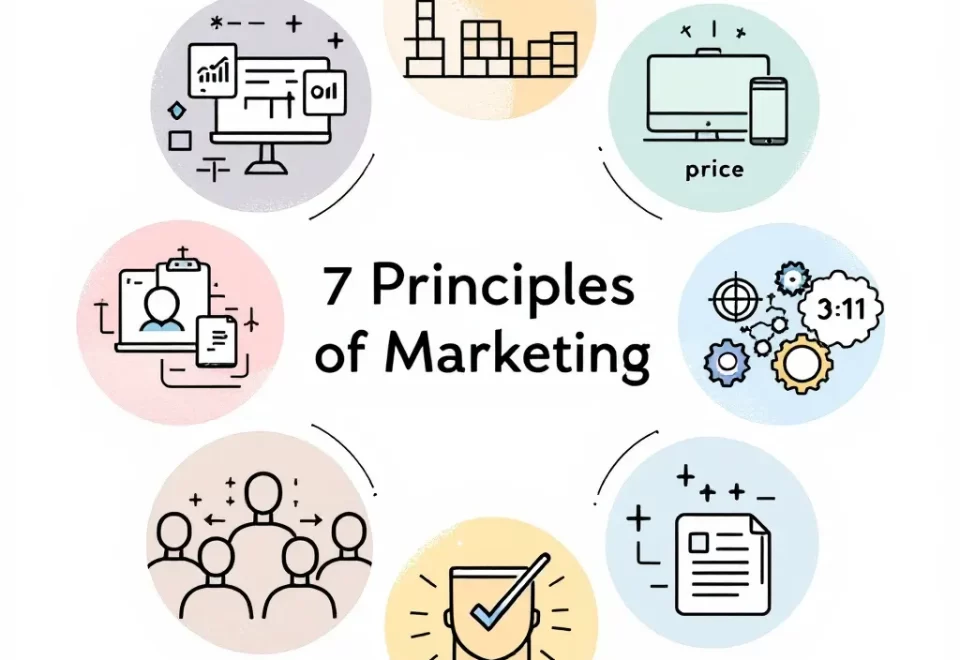Sandler’s Pain Funnel technique is a questioning strategy, with each question being more than just a good question, that salespeople can use to uncover a prospect’s pain points.
The idea is to start with general sales pain questions about the prospect’s business, then gradually narrow the focus to more specific questions about the problem the prospect is trying to solve. By the end of the funnel, the salesperson should have a good emotional understanding of the prospect’s needs and how they can be helped.
The Sandler pain funnel technique, otherwise known as the Sandler Sales System, can be an effective way to build rapport and establish trust with a prospect, and ultimately close more sales.
If this was all it took to sum up the Sandler pain funnel, businesses should be experiencing a skyrocketing sales process every time they incorporated the Sandler selling system in their business plans. However, sales is anything but so straightforward in reality.
Read on to discover just why and how the Sandler selling system is best incorporated into a business’s sales process and how you can use it to skyrocket your sales.
How Does the Concept of Customer Pain Factor Into a Sales Strategy?
Consider the following example of a doctor interacting with his potential patient.
When treating a new patient, if a doctor simply starts the conversation with a ‘Good morning’ and ‘How are you today?’ and the patient replies with ‘Good morning’ and ‘I’m doing just fine!’, there would be absolutely no need for the doctor to address a healthy patient further, isn’t it?
However, that’s not how a doctor operates. Doctors are professional healers for a reason. They ask probing questions that dig deeper and explore the patient’s pain points to narrow down the real cause of the visit and offer appropriate treatment. This exact same principle applies to sales but is often neglected in the race to close customer sales cases quickly.
Even in sales, pain is a powerful emotion. The Sandler Pain funnel is a system to uncover pain, which is the true pain that a customer is experiencing, through a systematic approach. A simple measure in place to uncover prospects’ pain points changes the entire outlook and efficiency of a sales process.
Do you want to build an effective sales process by leveraging the pain funnel?
The Good Thing About Asking Great Questions: Sandler Pain Funnel
One of the most effective aspects of the pain funnel is the intensity and accurate probing nature of the questions. If you’ve read through them you’ll agree that they’re not the regular yes-no questions, which they shouldn’t be.
The pain funnel questions are explorative and open-ended questions, running along the same thread as that of the challenger selling approach. Here are the Sandler Pain Funnel questions:
- Tell me more about that…
- Can you be more specific?
- Give me an example…
- How long has that been a problem?
- What have you tried to do about that?
- Has anything you’ve tried worked?
- How much do you think this has cost you?
- How do you feel about how much this has cost you?
- What kind of trouble does that cause you?
- Have you given up trying to deal with this problem?
If you look at these questions from a sales perspective, you’ll notice they target and address the gaps that most target business faces, specifically the sales team, within a sales process. However, it’s also in the good interest to not include every question for addressing in the same meeting or when exploring the pain points for similar products/services.
With the gap acknowledged, each question tries to weed out the general issue and ends up narrowing down the real pain points of the potential customer.
The pain funnel is an effective methodology to gather information in a more effective way. It starts off targeting the generic issue and with more information uncovered, the questions straight head in a specific direction to narrow down the real problem.
How To Implement the Pain Funnel To Skyrocket Your Sales?
The pain funnel is a simple way to get inside your customers’ heads and understand what they’re really struggling with. By asking a series of pain funnel questions, you can help them pinpoint their specific pain points and identify a potential solution.
This information is then used to inform your selling strategy and conversation. When done correctly, the pain funnel can help you close more sales and build deeper relationships with your customers.
To get started, simply ask your customers the following questions:
1) What Pain Are You Experiencing?
2) How Long Have You Been Experiencing This Pain?
3) What Have You Tried In The Past To Solve This Pain?
4) Why Haven’t These Solutions Worked?
5) What Would Be The Ideal Solution For You?
Asking these types of questions will help you get a better understanding of their business and what they’re trying to achieve. Next, dive deeper into their specific pain points. What are the symptoms of their pain? What are the consequences if they don’t address it? How is it impacting their business? Really understand what they’re going through, you’ll be able to offer a much more targeted solution.
By taking the time to understand your customers’ Pain Points, you’ll be in a much better position to sell them the solution they need. This is the right moment to implement a pain advertising campaign.
Understanding the Best Pain Funnel Questions
In reality, all pain funnel questions are in a class of their own, but asking them at the right moment makes a ton of difference to furthering a sales process. Each question tackles all the same thing but in a ‘perspective-wise’ different way.
Problem questions like how committed the prospect is towards resolving the issue, or whether they have given up resolving the issue altogether directly address the problem.
Implication questions like how the pricing affected their entire experience or how their overall experience was, help the prospect become personally involved on an emotional level.
Further open-ended questions like whether the prospect has tried to fix the issue by themselves and how are good enough questions that aim to flush out what the prospects think they require but don’t really. Plus, a conversation discussing whether they managed to fix the issue gives you the opportunity to reshape their needs.
A few general hygiene questions, in the end, sum up the tone of almost any meeting, something like if there’s anything helpful the salesperson should know about or the client wants to share.
The Sandler training system is a program that helps budding learners add one more skill to their marketing skillset. Simply mastering how to better understand potential clients and accurately identify and address their needs is a sure-fire way to close deals more effectively for revenue growth and increased ROI.
Close more sales and skyrocket your business by implementing the pain funnel now!
Your Prospects Don’t Really Know What’s Troubling Them
Quite often in sales, the salesperson has only one thing on his/her mind, to close the deal and complete the sale as soon as possible. And this in turn leads to making assumptions about the customer’s pain rather than seeing the problem objectively and moving towards the right sales approach.
Say, for example, a prospect shares that his/her delivery services are getting sloppy with the current supplier. A salesperson views this as an opportunity to get the prospect’s attention towards their services and replies by saying their services are always punctual and in what capacity. Something like a promotional encouragement.
However, the situation actually calls for the salesperson to dig deeper into what the prospect is really facing trouble with and how they can better contribute to improving the delivery service. The sales-person simply doesn’t know enough about the situation to efficiently solve the customer’s needs.
In this regard, the pain funnel offers a better chance to systematically gather the customer’s pain information instead of veering off the right track by making unnecessary assumptions. Additionally, people tend to offer symptoms of whatever is troubling them and don’t realize what the actual problem is really.
Here’s another example that reflects the same.
An accountant meets up with a new client looking for more professionals to check his books and see if the current accountant was being effective. After a thorough analysis of the issue, the accountant shares with his client, who is the owner of a company:
The finance team was actively financing the company vehicles but were sitting idly on about a million and a half dollars without putting it to use. The new accountant advised them to save 10,000 dollars simply by paying off those vehicles today with the cash sitting in the checking account.
Following a systematic series of probing questions, the accountant gets to know that the financing team wasn’t punctual with a few tax rules and thus in the danger zone with the IRS, headed towards losing the tax status.
The client realizes that even as a company owner, his team was being unnecessarily inefficient by holding on to a million and a half dollars without putting it to the right use and they didn’t even realize they were in pain since the actual problem wasn’t identified as such.
The accountant managed to notice the small flaw in the issue the prospect presented and dug a bit deeper with open questions to get to the root pain of the situation at hand. This exploratory selling approach helped him close the deal faster and efficiently so, uncovering the true pain and resolving bigger issues along the way.
Final Thoughts on Implementing the Pain Funnel To Skyrocket Sales
Working on your ideal customers’ pain points work whether you built a B2B sales funnel or a B2C one. There’s more to the Sandler Pain Funnel and the Sandler Training System than meets the eyes. Although, whichever approach you choose to invest in to qualify a potential prospect, it should only serve as a backbone to structure your personalized efforts to get a customer to open up about their issues.
You can’t be too overbearing with them or skip over some questions as you see fit, but instead modify the control of the conversation and give them time to comment and reflect even as you facilitate your selling approach.
If you’re seeking to get better at understanding your prospects’ pain but don’t know where to start, Growth Hackers is the growth agency that is ready to support you. As a vetted member of the industrial competition and having heralded several thousands of businesses successfully into growing sustainably and consistently, we offer our professional services in digital marketing for organic success.
Contact Growth Hackers today to learn more about what we have to offer and how you can grow your business through our personalized efforts!








